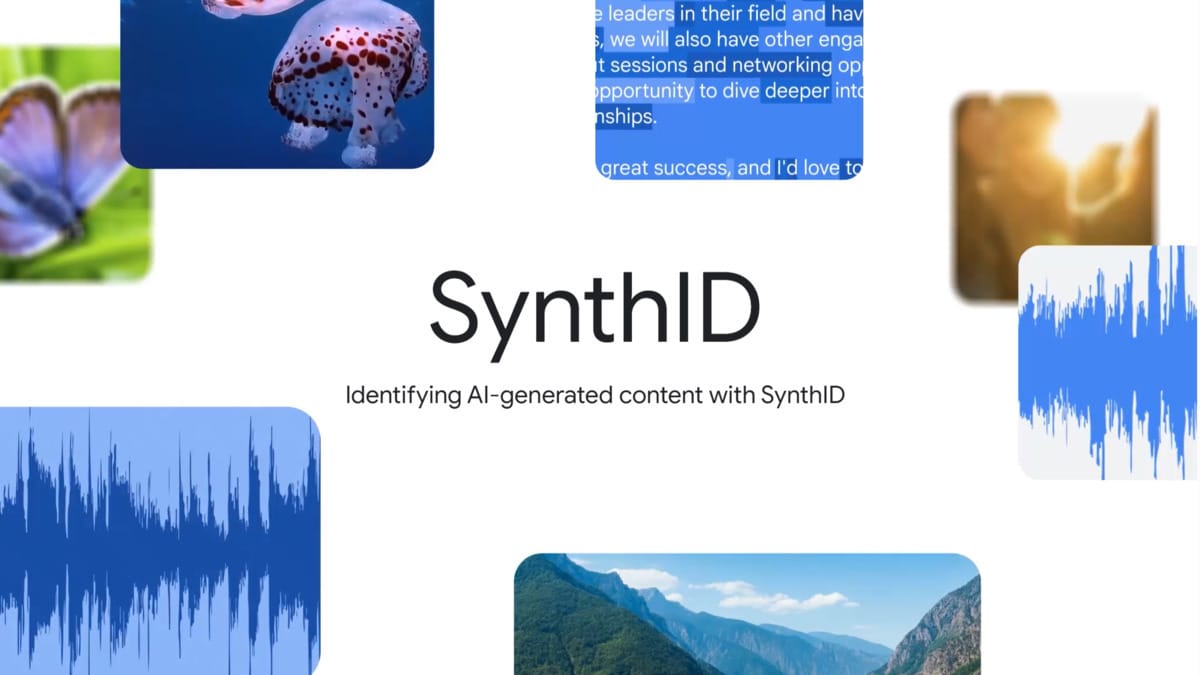Good morning, it’s Tuesday. Today, we’re looking at why advanced AI might be hitting walls—from model “inbreeding” (yes, that’s a thing) to the looming data drought and staggering costs that make nuclear reactors seem like an economical solution.
In other news: An Indian drugmaker supplies AI chips to Russia despite sanctions, Google’s "Project Jarvis" plans to take over computers, and Apple rolls out iOS 18.1. Let’s get into it.
Inside Today’s Edition:
🗞 YOUR DAILY ROLLUP
Top Stories of the Day

Apple Unveils 'Apple Intelligence'
Apple's "Apple Intelligence" brings AI tools to iPhone, iPad, and Mac, enhancing features like Siri, language processing, and photo search, with an emphasis on privacy through on-device processing. Integration with ChatGPT coming soon.
Google’s AI to Automate Computers
Google’s "Project Jarvis" will automate tasks like searching and booking within Chrome, positioning it alongside similar AI tools by Microsoft and Apple. A December preview is planned.
Indian Drugmaker Secretly Supplies AI Chips to Russia
Shreya Life Sciences has supplied Russia with NVIDIA-equipped Dell servers, bypassing Western sanctions through complex supply chains, highlighting enforcement gaps as India avoids joining sanctions.
Finally, An Official Definition for Open Source AI
The Open Source Initiative has released the Open Source AI Definition, establishing standards for transparency and accessibility in AI models, stirring debate over companies' use of the "open source" label.
xAI's Grok Gains Image Understanding
Elon Musk's xAI has upgraded its Grok model with image analysis for X platform's paid users, with plans for multimodal and document comprehension capabilities to enhance AI interactions.
👆 POWERED BY ENCORD

Instantly integrate SOTA AI models (Claude3-Opus, GPT-4o, LLaMa 3.1, LLaVa, Gemini 1.5 Pro) into your data workflows for automated data labeling, filtering, metadata enrichment and quality control using Encord’s agentic data workflow builder.
Optimize your data pipeline to produce accurately labeled AI training data at scale - click here to find out more.
👾 FORWARD FUTURE ORIGINAL
AlphaFold2 Is Finally Getting the Attention It Deserves: A Nobel Prize Long Overdue.

AlphaFold2, developed by Google DeepMind under the direction of Demis Hassabis and John Jumper, has reached a milestone in science. The AI model, which predicts the three-dimensional structure of proteins from their amino acid sequences, has solved a 50-year-old problem in chemistry. This led to the 2024 Nobel Prize in Chemistry being awarded to Hassabis, Jumper and biophysicist Baker, who was honored for his own groundbreaking work in the field of protein design.
What makes AlphaFold2 so extraordinary is its ability to make precise predictions about the structure of almost any known protein – a tool used by millions of scientists worldwide to make strides in areas such as drug development or understanding global health issue like antibiotic resistance. The significance of this discovery quickly became clear when the model was made freely available through the AlphaFold Protein Structure database. Since its launch in 2020, AlphaFold2 has not only transformed the way biologists work, but has also ushered in a new era of structural biology.
The Nobel Prize not only crowns years of research, but also demonstrates how machine learning and artificial intelligence are profoundly influencing our understanding of biological processes. It is therefore not surprising that AlphaFold2 has been considered groundbreaking and has received widespread recognition in the scientific community.
But what exactly makes AlphaFold so special, what significant impact will it have on our lives, and why has it taken so long to develop a model like this? In the following article, I will provide an overview of the AlphaFold model2 from Google DeepMind. → Continue reading here.
🤔 AI Limitations
Can Human-Level Intelligence Be Reached Without Human Input?

The Recap: As AI models advance, crucial human elements remain indispensable, posing serious roadblocks to scaling and sustainability. Wall Street Journal columnist Andy Kessler breaks down AI development's looming barriers, from human language limitations to financial sustainability and energy consumption.
Highlights:
AI's paradox of intelligence: Large Language Models (LLMs) simulate reasoning but fall short of intuitive perception, underscoring Hans Moravec’s observation that tasks humans find easy, like spatial navigation, are exceptionally hard for AI.
Dependence on human language: AI models rely on vast amounts of human prose, which could become scarce by 2032, risking "model collapse" where AI trained on AI-generated text degrades in quality.
Scaling limitations: While LLMs currently improve with scale, researchers warn of diminishing returns, suggesting AI could plateau even with increased data or computation.
Economic strain on infrastructure: Demand for GPUs is soaring, and AI costs are skyrocketing—OpenAI’s massive spending aims to justify $600 billion in capital investment, but breakeven may be a decade away.
High energy demands: AI is becoming increasingly energy-intensive, with each ChatGPT query consuming ten times the energy of a Google search; Microsoft even considers nuclear power to meet energy needs.
Limited job potential: Nobel laureate economist Daron Acemoglu argues AI can only realistically replace 5% of jobs, questioning the projected economic returns for AI investments.
Ongoing human involvement: Content agreements, like those between OpenAI and media outlets, are now essential for model quality, as AI cannot autonomously sustain linguistic richness.
Forward Future Takeaways:
While AI holds transformative potential, its success is bounded by current human input, energy limits, and diminishing returns from scale, underscoring a critical need for sustainable development. In the long term, the industry's growth may hinge on breakthroughs in energy use and innovative human-AI collaboration models to address limitations in language, power, and funding. The next decade will reveal if AI’s ambitious promises can align with its real-world capacities. → Read the full article here (Warning: Paywall).
🛰 NEWS
Looking Forward: More Headlines

Qualcomm on AI Photo Editing: Qualcomm and others stress balancing AI photo enhancements with authenticity, underscoring ethical concerns.
Meta's New AI Search Engine: Meta is developing an AI search engine to reduce reliance on Google and Bing, sparking data use discussions.
Midjourney's New AI Image Editor: Midjourney's "Edit" feature transforms images by modifying sections and textures.
Radio Replaces Journalists with AI: Poland's OFF Radio Krakow replaced journalists with AI avatars to attract younger listeners, sparking backlash.
Fixify Combines AI and Analysts: IT help desk platform Fixify automates ticket management with AI while integrating human analysts.
Apple’s Private Cloud Bounty: Apple has released a bounty program to enable independent verification of its Private Cloud Compute security.
Sensei Raises $16M for Contactless Retail: Portuguese startup Sensei secured €15M to scale its AI-driven contactless store platform.
🧰 TOOLBOX
AI Tools Revolutionizing Content Verification, Selling, and Bookkeeping

SynthID | Watermarking AI Content: Google’s SynthID embeds undetectable watermarks in AI-generated content to verify origins, aiding transparency and addressing misinformation concerns.
Hero | Speeding Up Selling: This AI-driven app streamlines selling by instantly pricing items, auto-generating listings, and enabling video uploads, offering a quick, fee-free selling experience.
Kick | AI Bookkeeping for Businesses: Kick automates bookkeeping by categorizing transactions, tracking deductions, and providing real-time insights, allowing entrepreneurs to simplify financial management.
📽 VIDEO
OpenAI Veteran: World Isn’t Ready for AGI
Miles Brundage, a departing OpenAI researcher, reveals in a blog post that neither OpenAI nor global systems are prepared for AGI’s impact, stressing the need for thoughtful governance. Brundage criticizes OpenAI's shift towards commercial interests, and advocates for independent research to better address the ethical challenges posed by rapidly advancing AI technology. Get the full scoop in our latest video! 👇
🗒 FEEDBACK
Help Us Get Better
What did you think of today's newsletter?
CONNECT
Stay in the Know
Follow us on X for quick daily updates and bite-sized content.
Subscribe to our YouTube channel for in-depth technical analysis.
Prefer using an RSS feed? Add Forward Future to your feed here.
Thanks for reading today’s newsletter. See you next time!
🧑🚀 Forward Future Team

